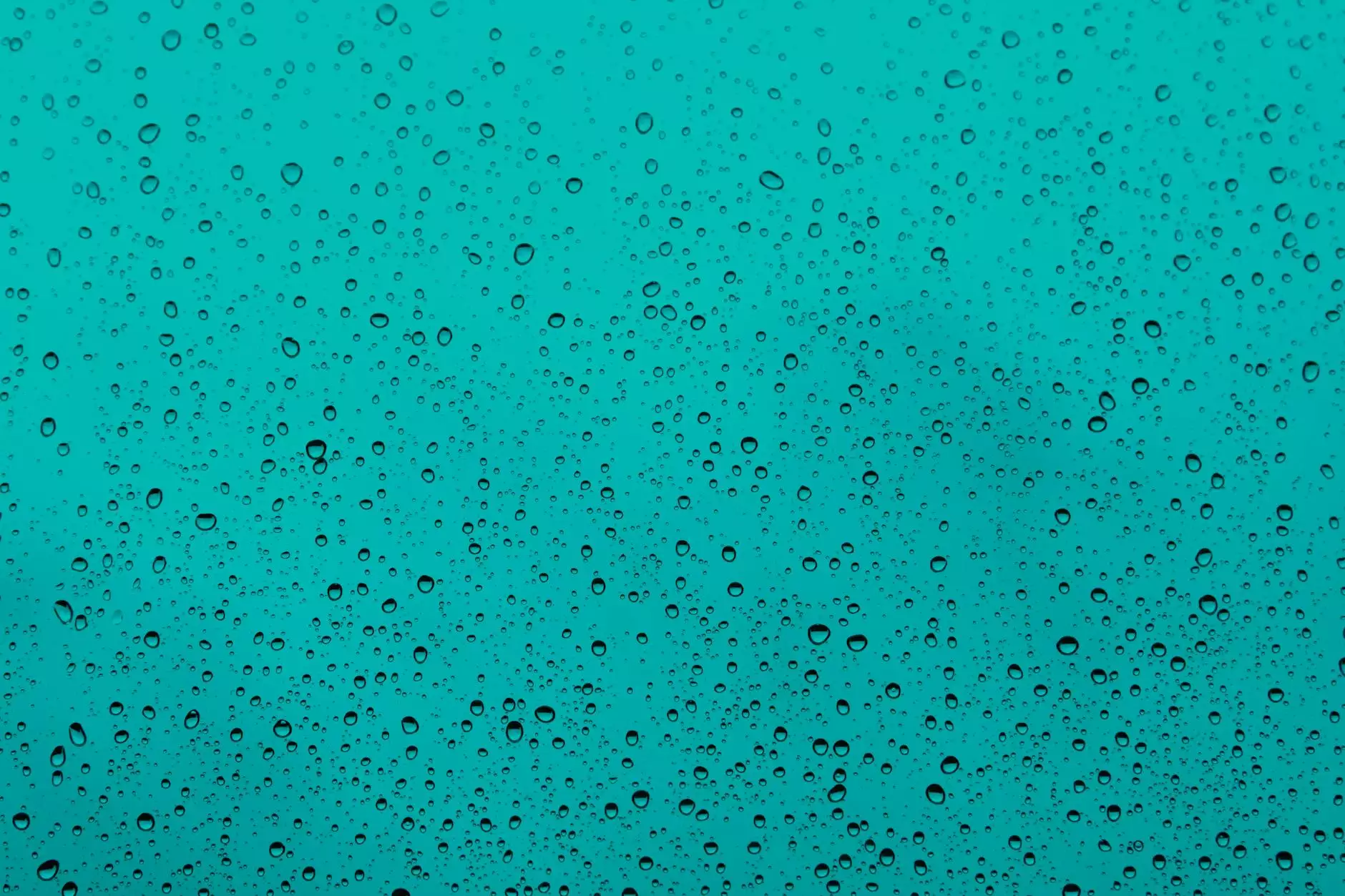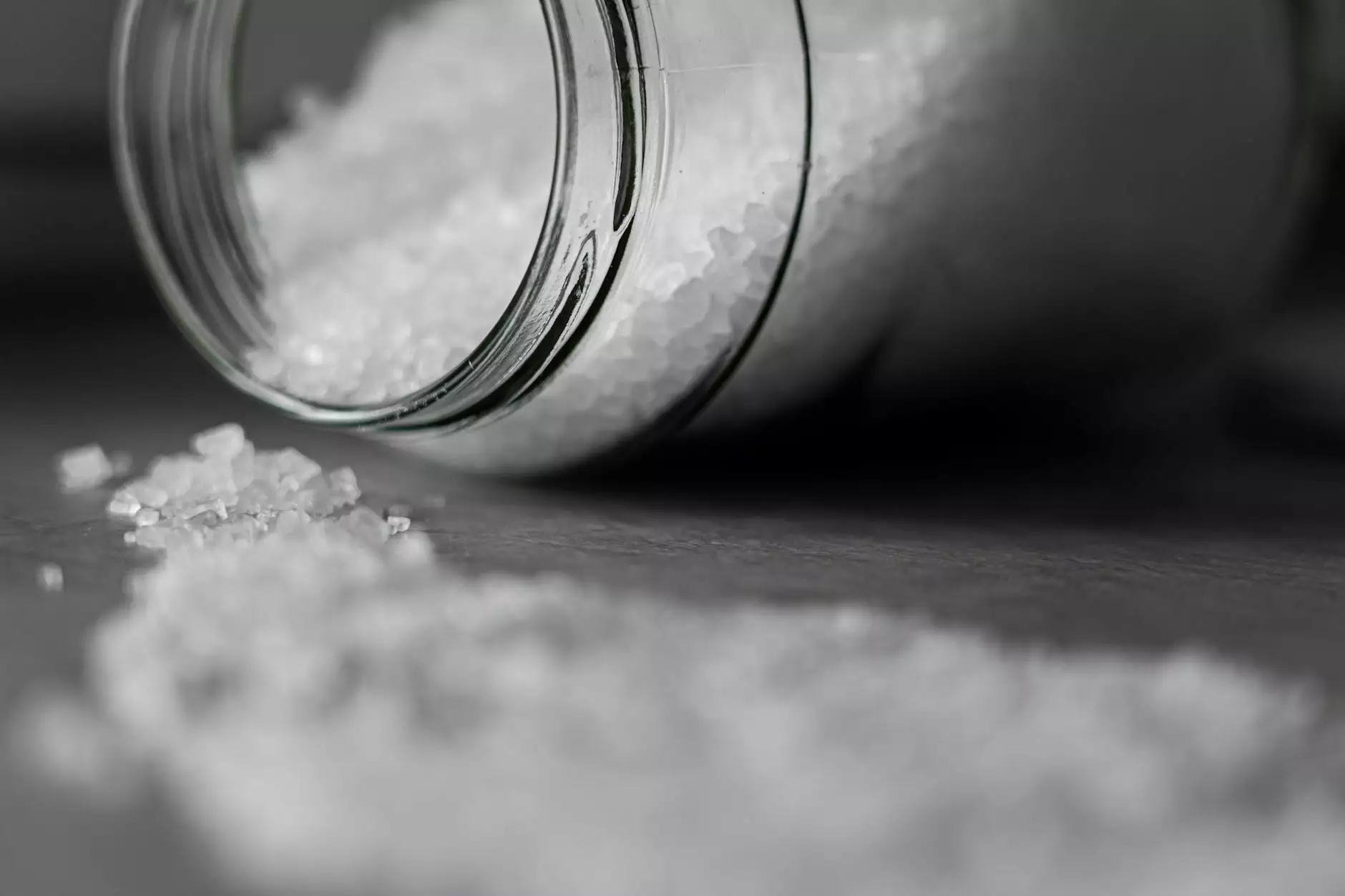Understanding Water Analyses: A Critical Component of Water Purification Services

Wateranalyses plays a pivotal role in ensuring the safety and quality of water, particularly for businesses that rely on clean water for their operations. In today's world, where water quality can significantly impact health, safety, and operational efficiency, understanding the importance of thorough water analyses is essential.
What are Water Analyses?
At its core, wateranalyses refers to the systematic examination and testing of water samples to identify contaminants, assess water quality, and ensure compliance with legal standards. The results of these analyses can help businesses make informed decisions regarding water use, treatment, and compliance with health regulations.
The Necessity of Water Analyses for Businesses
Businesses across various industries face unique challenges regarding water usage. For instance:
- Manufacturing: Industries often utilize large amounts of water in their processes, necessitating clean water sources to prevent contamination of products.
- Food and Beverage: Water quality is crucial as it directly impacts product safety and taste.
- Healthcare: Hospitals and clinics require ultra-pure water for medical procedures and sanitation.
- Construction: Clean water is essential for mixing concrete and other materials.
In every scenario, conducting wateranalyses is vital for ensuring that the water meets necessary standards, protecting both the business and its customers.
Key Benefits of Conducting Regular Water Analyses
The advantages of incorporating regular wateranalyses into your business operations are multifaceted:
1. Ensuring Compliance with Regulations
Many industries are governed by strict regulations regarding water quality. Regular water testing helps businesses stay compliant with local and national health standards, preventing costly fines and potential shutdowns.
2. Protecting Health and Safety
Contaminated water can pose serious health risks. By conducting wateranalyses, businesses can ensure the safety of their employees and customers, reducing the risk of waterborne illnesses.
3. Enhancing Operational Efficiency
Water quality can greatly impact operational efficiency. High levels of contaminants can lead to equipment wear and tear, requiring frequent maintenance and repairs. Regular analyses help identify issues before they escalate, leading to increased efficiency and lower operational costs.
4. Improving Customer Trust
For businesses in the food and beverage sector, demonstrating commitment to quality by conducting wateranalyses can enhance customer trust and loyalty. Customers are increasingly aware of health and safety standards, and transparent practices can set a business apart from its competitors.
How Water Analyses are Conducted
The process of conducting wateranalyses typically involves several steps:
1. Sample Collection
Careful sampling is crucial. Professionals must use sterilized containers to collect water samples from various points within the water supply system.
2. Laboratory Testing
Once samples are collected, they are sent to a certified laboratory where a variety of tests are performed, including:
- Chemical analyses: Testing for harmful chemicals like pesticides, heavy metals, and nitrates.
- Microbiological tests: Looking for bacteria, viruses, and other pathogens.
- Physical tests: Assessing factors like temperature, pH, and turbidity.
3. Interpretation of Results
Laboratories provide detailed reports outlining the water quality based on the tests conducted. Understanding these results is crucial for businesses to take appropriate action.
4. Implementing Solutions
Depending on the findings, businesses might need to implement solutions such as water purification systems or changes in sourcing practices to ensure water quality.
The Role of Water Purification Services
Water purification services, like those offered by waterverzachteraquagroup.be, complement the findings of wateranalyses. If analyses reveal contaminants that exceed safe levels, purification systems can effectively remove these threats from the water supply.
Benefits of Professional Water Purification Services
Utilizing a professional service for water purification has several benefits:
- Expertise: Professionals are trained to understand the nuances of water treatment and can recommend the best systems based on specific needs.
- Advanced Technology: They often use cutting-edge technology to ensure effective purification.
- Ongoing Support: Many services provide maintenance and support to keep water systems operating efficiently.
Conclusion
In the landscape of modern business, conducting wateranalyses is more than just a regulatory requirement; it is a necessity that ensures the safety, health, and efficiency of operations. With the insights gained through comprehensive water testing, combined with the utilization of professional water purification services, businesses can confidently navigate the complexities of water quality. By prioritizing water safety, companies not only protect their bottom line but also foster trust and loyalty among their customers.
Whether you are in the food industry, healthcare, or any sector reliant on clean water, integrating water testing and purification services into your operations can lead to enduring success. Don't overlook the crucial role of wateranalyses; invest in your business's future by ensuring your water quality is second to none.








